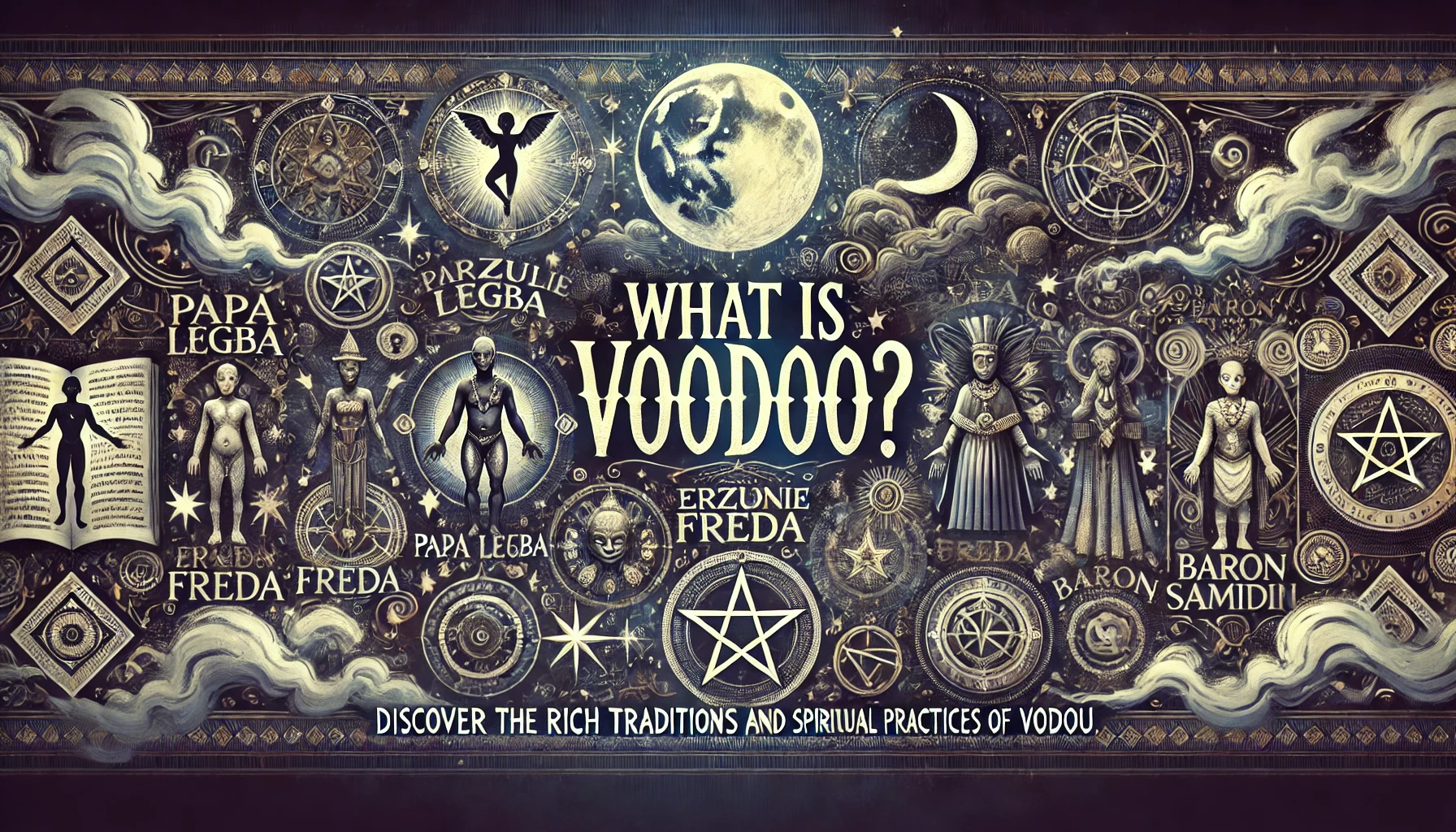
 |

This page will explore very basic information about Voodoo and Vodou. We will be updating periodically to add more information.
Voodoo, also spelled Vodou or Vodun, is a religion and spiritual practice that originated in West Africa and developed in the Caribbean, particularly in Haiti, as a syncretism of African religious traditions and elements of Christianity brought by European colonizers. It is a complex and multifaceted belief system that encompasses theology, ritual practices, moral codes, and a rich cultural heritage. As with other alternative religions, you will run into a lot of bad information, power grabs, and fear mongering. If you have an interest in this practice, it is worth it to do your research and try to separate the fact from fiction.
Voodoo has its roots in the traditional religions of the Fon, Ewe, and Yoruba peoples of West Africa. These traditions were brought to the Caribbean and the Americas by enslaved Africans. In Haiti, Voodoo evolved by blending African religious elements with Roman Catholicism, which was the dominant religion imposed by French colonizers. This syncretic nature is evident in the way Voodoo practitioners, known as Vodouisants, venerate Catholic saints alongside traditional African deities known as lwa (also spelled loa).
Vodou's introduction into places like the United States came on the backs of slaves who longed to maintain their religious and spiritual practices. You see theories about this sugar coated, but that is just the truth of it. Slaves brought to America against their will brought their beloved religion with them. Today, we are so very luck and enriched that we have the privilege to practice.
Voodoo is a monotheistic religion that acknowledges one supreme god, often referred to as Bondye (from the French "Bon Dieu," meaning "Good God"). However, Bondye is considered distant and not directly involved in the affairs of humans. Instead, Vodouisants interact with a pantheon of spirits known as lwa, who serve as intermediaries between humans and Bondye.
The lwa are divided into different families or nations, each with its own characteristics, preferences, and areas of influence. These nations are divided into the Petro, Rada, and Ghede. We will explore more information about that, coming soon. Some of the well-known lwa include:
Voodoo rituals are central to the practice and involve a variety of activities, including singing, drumming, dancing, and offering food and gifts to the lwa. These rituals can be public ceremonies or private rites performed in homes or temples known as hounfours.
Key components of Voodoo rituals include:
- Altars and Offerings: Altars are set up to honor the lwa, adorned with candles, flowers, images, and personal items. Offerings of food, drink, and other gifts are presented to appease and gain favor from the spirits.
- Veves: Intricate symbols drawn on the ground or floor, representing specific lwa. Veves are used to summon the spirits during rituals.
- Possession: During ceremonies, it is believed that the lwa can possess individuals, known as "horses," who then act and speak as the lwa. This is seen as a way for the spirits to directly interact with the community.
Voodoo has often been misunderstood and misrepresented, especially in Western media, where it has been portrayed as dark, malevolent, and associated with black magic. This negative portrayal is far from the reality of Voodoo as practiced by millions of people who view it as a religion of healing, community, and spiritual connection.
In Haiti, Voodoo is recognized as an official religion and plays a significant role in the cultural and social life of the country. It has also influenced other Afro-Caribbean religions such as Santería in Cuba and Candomblé in Brazil.
In summary, Voodoo is a vibrant and deeply spiritual practice with rich traditions and beliefs that emphasize the interconnectedness of the natural and supernatural worlds. It is a religion that honors the wisdom of the ancestors, the power of the spirits, and the resilience of the human spirit.